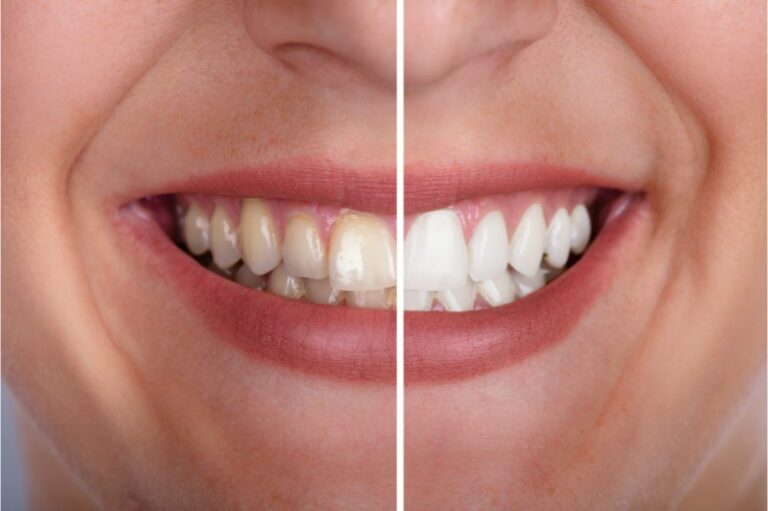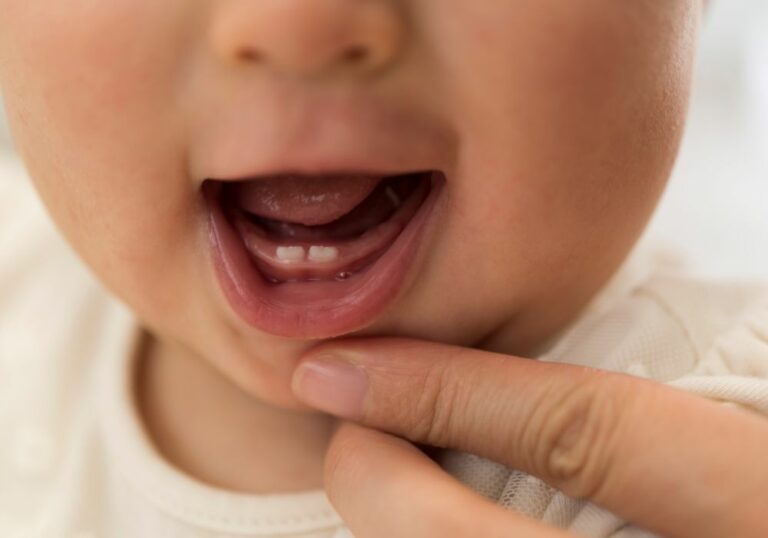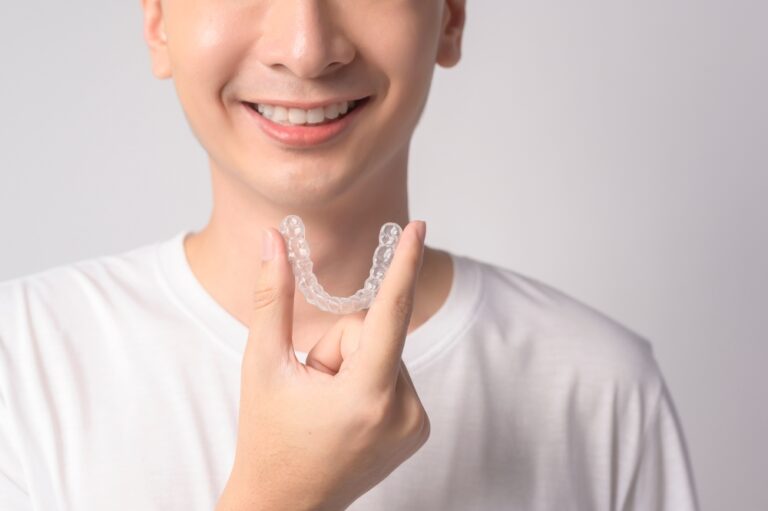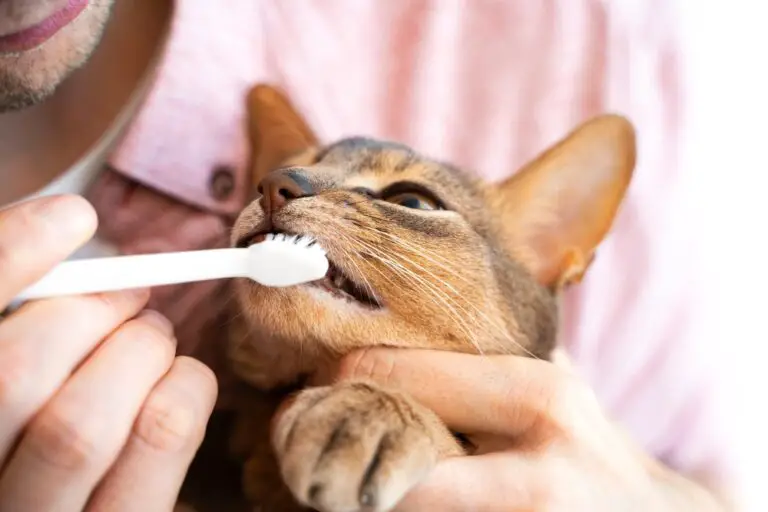If you have buck teeth, you may be wondering if they will go away on their own. Buck teeth, also known as an overbite or malocclusion, are a common dental issue that can affect people of all ages. While some cases of buck teeth may improve with time, others may require treatment to correct.
Buck teeth occur when the upper front teeth protrude over the lower front teeth. This misalignment can be caused by a variety of factors, including genetics, childhood habits like thumb sucking or pacifier use, and jaw size and shape. In some cases, buck teeth may improve as the jaw continues to grow and develop. However, for many people, treatment may be necessary to correct the issue and prevent potential dental problems down the line.
If you’re concerned about your buck teeth, it’s important to speak with a dental professional. They can assess your individual case and recommend the best course of action for you. Treatment options may include braces, clear aligners, or even surgery in severe cases. With the right treatment, you can achieve a healthy, functional bite and a confident smile.
Understanding Buck Teeth
What Are Buck Teeth?
Buck teeth, also known as an overbite or malocclusion, is a dental condition where the upper front teeth protrude outwards beyond the lower front teeth. This misalignment of the teeth can range in severity and can cause discomfort and self-consciousness in some people.
Buck teeth can affect both children and adults, and it is estimated that around 70% of children have some form of malocclusion. While some people choose to live with their buck teeth, others may seek treatment to correct the issue.
Causes of Buck Teeth
There are several causes of buck teeth, including:
- Genetics: Buck teeth can be inherited from parents who also have malocclusion or other dental issues.
- Childhood habits: Thumb-sucking or pacifier use can cause buck teeth in children if the habit continues for an extended period.
- Mouth breathing: Breathing through the mouth instead of the nose can cause the tongue to rest on the lower teeth, pushing the upper teeth forward.
- Tooth loss: Losing teeth prematurely can cause the remaining teeth to shift and create an overbite.
- Jaw size: A small lower jaw or a large upper jaw can cause buck teeth.
If you suspect that you or your child has buck teeth, it is essential to consult a dentist or orthodontist for an accurate diagnosis and treatment plan. They can determine the cause of the overbite and recommend the best course of action to correct it.
Buck Teeth in Children
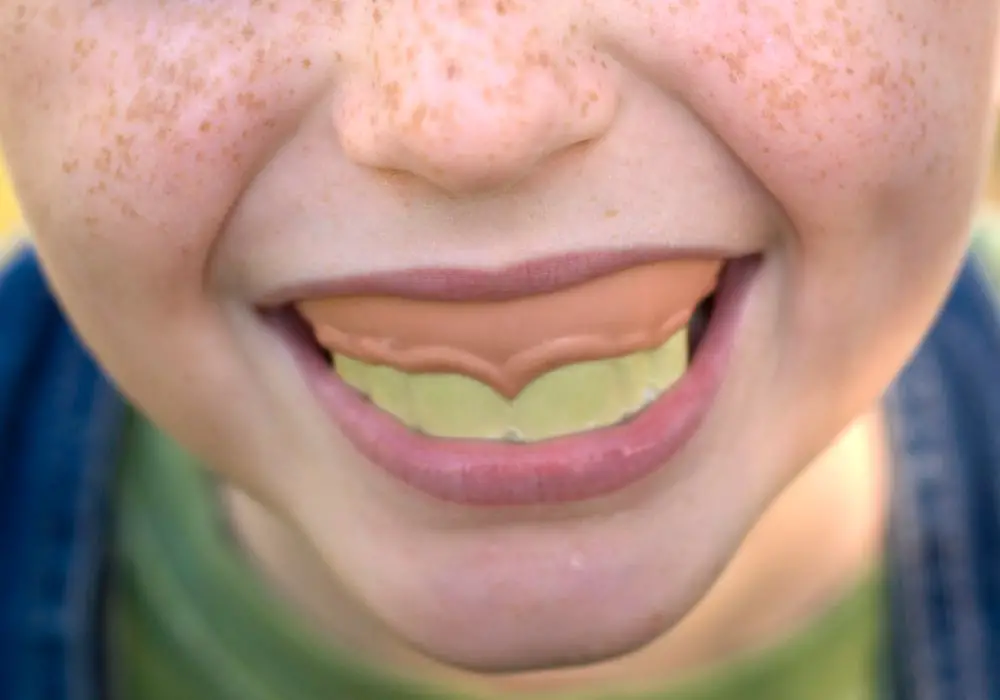
Buck teeth, also known as an overbite or malocclusion, is a common dental issue in children. In this section, we will discuss the development of buck teeth in children and its potential effects.
Development of Buck Teeth in Children
Buck teeth can develop in children due to several reasons. One of the most common causes is genetics. If a child’s parents have buck teeth, there is a higher chance that the child will also develop them. Other causes include thumb-sucking, prolonged use of pacifiers, and tongue-thrusting.
Thumb-sucking and pacifier use can cause buck teeth by putting pressure on the front teeth and pushing them forward. Tongue-thrusting, on the other hand, is a habit where a child pushes their tongue against or between their teeth while talking, swallowing, or resting. This habit can also cause the front teeth to move forward, resulting in buck teeth.
Potential Effects on Children
Buck teeth can have several potential effects on children. One of the most common effects is speech problems. Buck teeth can make it difficult for children to pronounce certain sounds correctly, such as “s” and “th.” This can affect their communication skills and lead to low self-esteem.
Buck teeth can also cause oral health problems. The misalignment of teeth can make it difficult to clean them properly, leading to tooth decay, gum disease, and bad breath. In severe cases, buck teeth can cause jaw pain and discomfort.
It is essential to address buck teeth in children as early as possible to prevent these potential effects. Treatment options include braces, retainers, and other orthodontic devices. Your child’s dentist or orthodontist can recommend the best treatment option based on their individual needs.
In conclusion, buck teeth are a common dental issue in children that can have potential effects on their speech and oral health. It is important to address this issue early on to prevent any long-term effects. If you suspect that your child has buck teeth, consult with their dentist or orthodontist for proper evaluation and treatment.
Buck Teeth in Adults

Buck teeth, also known as an overbite or malocclusion, can affect people of all ages, including adults. While it is more common for children to have buck teeth, it is possible for adults to develop this condition as well.
Causes
There are several causes of buck teeth in adults, including:
- Genetics: Sometimes, buck teeth can be inherited from parents or other family members.
- Thumb sucking: Adults who continue to suck their thumbs may develop buck teeth.
- Tongue thrusting: This occurs when the tongue pushes against the teeth while swallowing or speaking, causing the teeth to move forward.
- Teeth grinding: Grinding your teeth can cause them to shift forward over time, resulting in buck teeth.
- Trauma: Injury to the mouth or jaw can cause the teeth to shift out of position, resulting in buck teeth.
Symptoms
Buck teeth can cause several symptoms in adults, including:
- Difficulty biting or chewing
- Speech difficulties
- Self-consciousness about the appearance of teeth
- Increased risk of tooth decay and gum disease due to difficulty cleaning teeth properly
Treatment
Treatment for buck teeth in adults may include:
- Braces: Traditional metal braces or clear aligners can help shift the teeth back into proper alignment.
- Surgery: In severe cases, surgery may be necessary to reposition the jaw or realign the teeth.
- Retainers: After braces or surgery, a retainer may be necessary to maintain proper alignment of the teeth.
It is important to consult with a dentist or orthodontist if you are experiencing symptoms of buck teeth. They can help determine the cause and recommend the best course of treatment for your individual needs.
Treatment Options
If you have buck teeth, there are different treatment options available to help correct the issue. Here are two main options:
Orthodontic Treatment
Orthodontic treatment is the most common way to treat buck teeth. This treatment involves using braces or clear aligners to move your teeth into the correct position. Your orthodontist will create a customized treatment plan for you, which may include wearing braces for a certain period of time, adjusting the wires and brackets, and regular checkups to monitor your progress.
Braces work by applying gentle pressure to your teeth, which gradually moves them into the desired position. The length of treatment depends on the severity of your overbite, but it typically takes between 18 and 24 months. Clear aligners are another option for treating buck teeth. They work similarly to braces but are less noticeable and can be removed for eating and cleaning.
Surgical Intervention
In severe cases, surgery may be necessary to correct buck teeth. This is usually reserved for cases where orthodontic treatment alone is not enough to correct the issue. Surgery may involve repositioning the jaw or removing some of the bone to allow the teeth to move into the correct position.
Surgical intervention is typically reserved for adults, as their jaws have stopped growing. The recovery time for surgery can vary, but it usually takes several weeks to several months to fully recover.
It’s important to note that while surgery may be necessary in some cases, it is typically not the first treatment option. Orthodontic treatment is usually the first course of action, as it is less invasive and has a lower risk of complications.
In summary, there are different treatment options available for buck teeth, including orthodontic treatment and surgical intervention. Your orthodontist will work with you to determine the best course of action based on the severity of your overbite. With the right treatment, you can achieve a healthy and beautiful smile.
Prevention Strategies
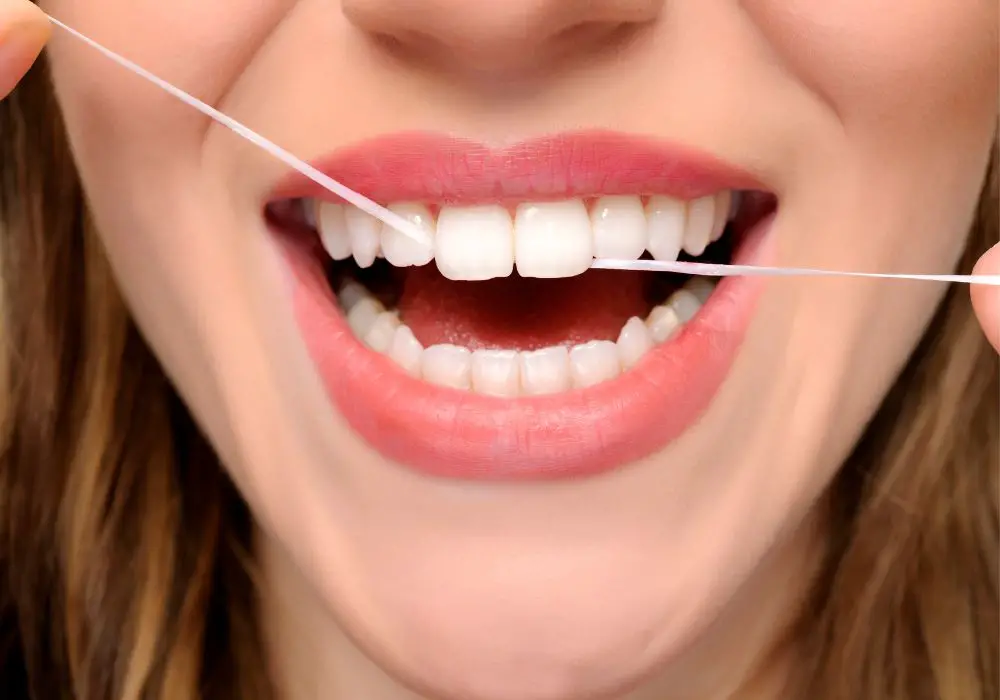
There are several strategies that can help prevent buck teeth from developing or worsening. Here are some tips:
- Limit thumb-sucking and pacifier use: Thumb-sucking and pacifier use can cause buck teeth, so it’s important to limit these habits as much as possible. Encourage your child to stop using a pacifier after age 3, and provide positive reinforcement when they refrain from thumb-sucking.
- Encourage proper oral hygiene: Good oral hygiene can help prevent many dental problems, including buck teeth. Make sure your child brushes their teeth twice a day and flosses daily. You can also encourage them to use mouthwash to kill bacteria that can cause tooth decay.
- Visit the dentist regularly: Regular dental checkups can help catch dental problems early, before they become more serious. Your dentist can also provide advice on how to prevent dental problems from developing in the first place.
- Consider orthodontic treatment: If your child’s teeth are misaligned, early orthodontic treatment can help prevent buck teeth from developing. Talk to your dentist or orthodontist about the best treatment options for your child.
By following these prevention strategies, you can help ensure that your child’s teeth stay healthy and aligned. Remember, prevention is always easier than treatment, so it’s important to start early and stay consistent with good oral hygiene habits.
Frequently Asked Questions
Can buck teeth be fixed without braces?
Yes, there are other options to fix buck teeth besides braces. Clear aligners like Invisalign can be used to correct mild to moderate cases of buck teeth. Additionally, dental bonding, veneers, or crowns can be used to reshape and cover the teeth.
Can Invisalign fix buck teeth?
Yes, Invisalign can fix mild to moderate cases of buck teeth. Invisalign uses clear aligners to gradually shift the teeth into the desired position. However, severe cases of buck teeth may require traditional braces or other orthodontic treatments.
How to fix buck teeth in adults?
Buck teeth can be fixed in adults through orthodontic treatments such as braces or clear aligners. In severe cases, surgery may be necessary. Additionally, cosmetic treatments such as veneers or bonding can be used to improve the appearance of the teeth.
Are buck teeth permanent?
Buck teeth are not necessarily permanent. Orthodontic treatments such as braces or clear aligners can be used to correct the position of the teeth. However, if left untreated, buck teeth can lead to dental problems such as tooth decay, gum disease, and jaw pain.
Do buck teeth get worse with age?
Buck teeth can get worse with age if left untreated. As the jawbone continues to grow and change throughout adulthood, the position of the teeth can become more pronounced. Additionally, habits such as thumb-sucking or tongue-thrusting can exacerbate the problem.
What causes buck teeth?
Buck teeth can be caused by a variety of factors, including genetics, childhood habits such as thumb-sucking or pacifier use, and certain medical conditions such as a cleft palate. Additionally, overcrowding or a mismatch between the size of the teeth and the jaw can contribute to buck teeth.


